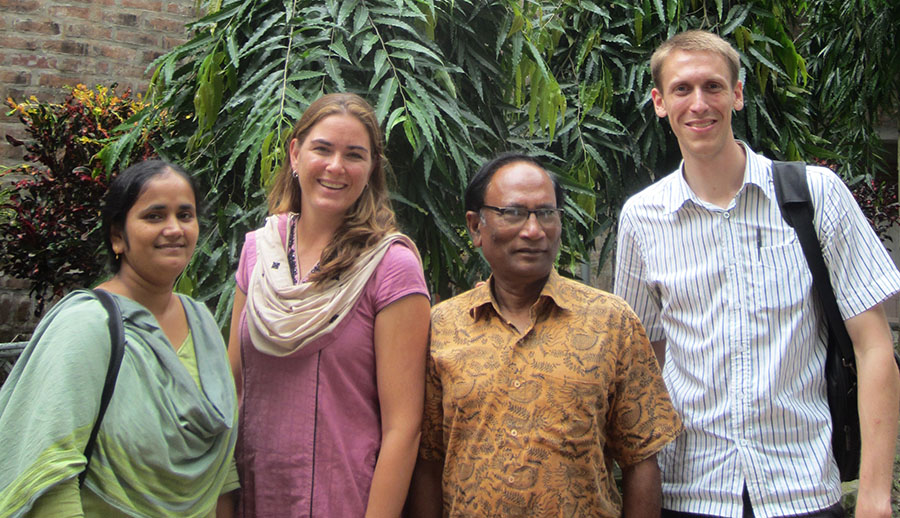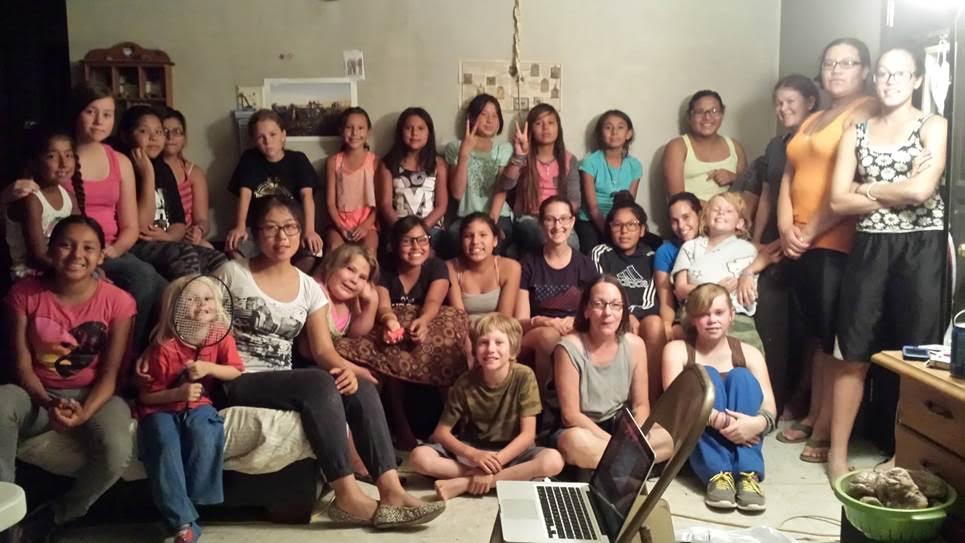by Paul McDivitt
Students associated with the Institute of Behavioral Science (IBS) have recently been awarded several competitive fellowships and grants to help with their graduate education, research, and dissertation work.
"I had been checking the status of my application neurotically for months," said Robbee Wedow, an IBS student who recently received the prestigious National Science Foundation Graduate Research Fellowship.
Wedow went to the website portal one day and noticed that the site's greeting had changed from "Welcome Applicant" to "Welcome Fellow." He was shocked and confused because he had yet to receive an official email, so he called the fellowship hotline to make sure it wasn’t a mistake. They said they had accidentally changed the website portal the day before sending out the email, and that he had in fact been awarded the fellowship.
"After my head stopped spinning, I was just overwhelmingly grateful and euphoric for weeks," said Wedow.
Gene-Environment Interactions
Wedow, entering his third year at IBS, studies the role of genetics in health behavior. For example, his recent focus is on the relationship between subjective health assessment and objective health measures, such as perceived weight status and objective Body Mass Index, with an emphasis on the underlying genetic contributions to health and weight identity.
Hispanic Neighborhoods and Chronic Disease
Emily Steiner, an IBS student pursuing a PhD in sociology, also received the NSF fellowship.
"It's really a game changer for graduate careers," she said. "The fellowship not only provides three years of full funding for graduate students to focus on their own research, it's also a prestigious honor that will hopefully open doors to more great opportunities in the future."
Steiner is currently finishing up her dissertation, which looks at what she calls the "Hispanic Health Paradox."
"In many of the health surveys that are collected in the United States, Hispanics as a group have better health than other racial and ethnic groups across a number of health outcomes," she said. "This is paradoxical because, on average, Hispanics have lower socioeconomic status (SES), and low SES is typically related to poor health."
Steiner is expanding upon previous research that has shown that Hispanic neighborhoods have certain characteristics that help to stave off chronic diseases, such as high blood pressure and cholesterol. She will be surveying and interviewing residents in Hispanic neighborhoods in Denver to learn more, and credits the fellowship with enabling this in-depth research.
"Going forward, it will provide the flexibility for me to conduct fieldwork in Denver for my dissertation and the time to take additional coursework," said Steiner.
Inmate Health in U.S. Prisons
Kathryn Nowotny received both the National Institute of Health Ruth L. Kirschstein National Research Service Award Fellowship and an NSF Dissertation Improvement Grant.
"The fellowship has been great because it gives me the time to focus exclusively on research – both my independent dissertation research and my collaborative research with faculty at CU and other universities – as well as time for additional training to support my research," she said.
Nowotny's dissertation is looking at how incarceration influences health in U.S. prisons, identifying factors that link imprisonment to morbidity and mortality. She's also studying how, and if, inmates utilize prison health services. The NSF grant helped pay for four statistics workshops and a trip to a secure data enclave that she says will help improve her dissertation analysis.
Arsenic Contamination in Bangladesh
Chris Jochem also received both a graduate research fellowship and a dissertation improvement grant.
Using data from an IBS-led project, Jochem's dissertation explores the social and spatial patterns of exposure to arsenic-contaminated drinking water in Bangladesh, and the human health impacts of that exposure. The NSF fellowship allowed him to spend over 20 months in Bangladesh helping with the fieldwork and data collection for the project. The dissertation improvement grant, also from the NSF, funded an additional month in Bangladesh, as well as a week-long class in South Carolina to learn advanced statistical methods that he'll apply to the project.
"I'm passionate about my work and I hope that my research on arsenic can help improve conditions in Bangladesh," he said. "The grant provides support to help me make my project the best it can be as I work toward this goal."
IBS Community
All four students credited IBS faculty, staff, and fellow students with helping them get these important awards.
"I wouldn't have been able to get this grant without the people and resources that come together at IBS," said Jochem. "Everyone here is incredibly supportive and they push me to do my best work always."
Steiner is thankful for the workshops, writing groups, graduate student poster sessions, and panel discussions that IBS hosts.
"I have benefited so much from these opportunities," she said. "Since I joined the IBS community three years ago, I've been amazed by the ability of the institute to foster a community of shared learning and support."
Steiner and a few of the other NSF fellowship recipients decided to return the favor by designing a workshop to help other IBS students apply, and the institute sponsored it.
"Last year was the first year of the workshop, and four of our nine participants received the competitive fellowship," she said. "More than anything, this example reflects an environment where we use our successes to bolster and build the capacity of others, and I feel so lucky to be a part of it."
Nowotny agrees.
"I feel extremely supported and will be forever grateful to all of the faculty and staff at IBS that have helped me," she said. "I wouldn’t be where I am today without them."









